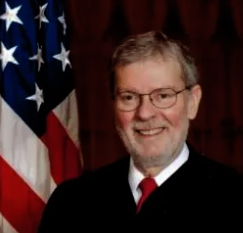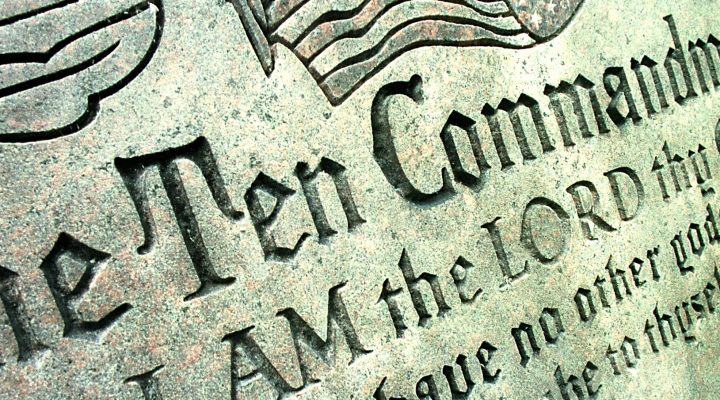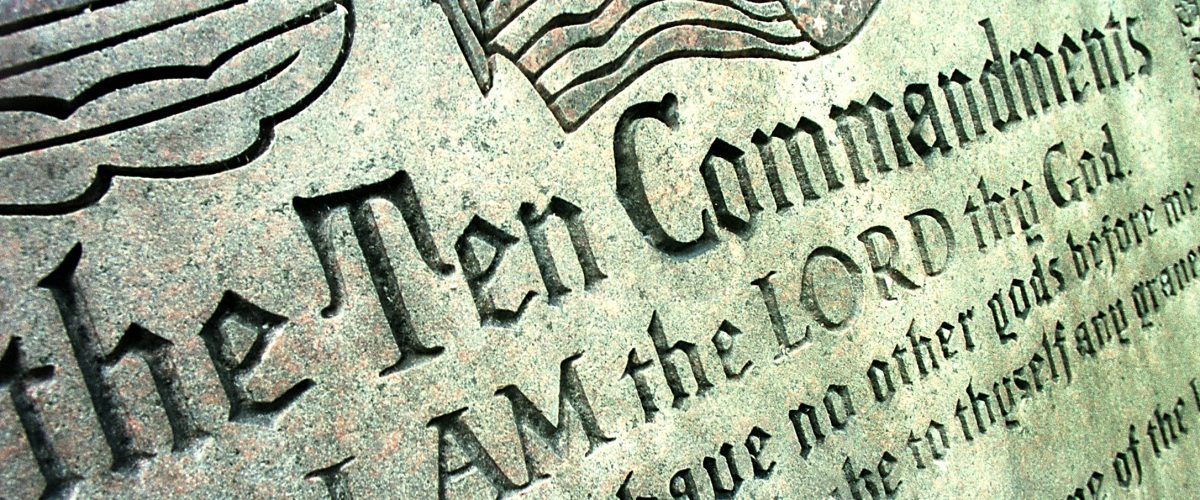A Louisiana law requiring the Ten Commandments be posted in every public classroom is “unconstitutional on its face” and may not go into effect Jan. 1 as state officials hoped, a federal judge has ruled.
U.S. District Judge John W. deGravelles in Baton Rouge also determined House Bill 71 to be “discriminatory” in preferencing a particular brand of Christianity over other faiths and “coercive” because all school children, regardless of religious affiliation, would be forced to see the framed or postered copies of the Decalogue throughout the school day.

John deGravelles
“Further, these displays must be posted in every ‘classroom in each school,’ all year round, regardless of subject matter, and regardless of the age of the student. Thus, the question is not whether the biblical laws can ever be put on a poster; the issue is whether, as a matter of law, there is any constitutional way to display the Ten Commandments in accordance with the minimum requirements of the Act,” he wrote. “In short, the court finds that there is not.”
Plaintiffs and their legal representatives said deGravelles’ order is a wake-up call for state politicians bent on forcing their religious doctrines on public school children and their families.
“HB-71 is a direct infringement of our religious-freedom rights, and we’re pleased and relieved that the court ruled in our favor,” said lead plaintiff Darcy Roake, a Unitarian Universalist minister with two children in public schools. “As an interfaith family, we expect our children to receive their secular education in public school and their religious education at home and within our faith communities, not from government officials.”
The ruling also is a lesson that public schools are not the place to attempt to convert children to a particular religion — in this case a conservative form of Christianity, said Heather L. Weaver, senior staff attorney for the ACLU’s Program on Freedom of Religion and Belief. “Public schools are not Sunday schools, and today’s decision ensures that our clients’ classrooms will remain spaces where all students, regardless of their faith, feel welcomed.”
“This ruling will ensure that Louisiana families — not politicians or public school officials — get to decide if, when and how their children engage with religion,” said Rachel Laser, president of Americans United for Separation of Church and State. “It should send a strong message to Christian nationalists across the country that they cannot impose their beliefs on our nation’s public school children. Not on our watch.”
The Nov. 12 ruling goes into effect immediately because deGravelles also rejected the state’s request for a stay pending appeal to the U.S. Fifth District Court of Appeal in New Orleans. His decision relied in part on Stone v. Graham, a 1980 U.S. Supreme Court case rejecting a Kentucky law requiring Ten Commandments displays in public schools.

Liz Murrill
Louisiana Attorney General Liz Murrill not only vowed to appeal the ruling but also expressed confidence the Supreme Court may reconsider Stone in light of its 2022 Kennedy v. Bremerton School District, which protected the religious expression of school and other government employees in school and other official settings.
Gov. Jeff Landry expressed hope the state would be sued over the law he signed into law in June so that it could wind up before a more conservative high court. He has also said children offended by the Ten Commandments displays should simply not look at them.
In an interview with Family Research Council President Tony Perkins, Murrill said the state is eager to move forward in the appeals process: “The landscape for religious freedom and exercise in this country has changed significantly under the current Supreme Court and decisions that have been made which would open the door to revisiting what happened in 1980.”
In this “new era” of the court, she said, conservative justices may uphold the Louisiana statute because the Ten Commandments will be displayed in a historical setting along with the Bill of Rights and documents considered central to the founding of the United States.
Separately, Murrill said the judge’s decision legally affects only the five school districts named in the suit, the Associated Press reported. Those are the parishes of East Baton Rouge, Livingston, St. Tammany, Orleans and Vernon. However, she expected the ruling to have a “chilling effect” on the rest of the state’s school systems.
But claiming the displays are about history does not diminish their intrinsic religious meaning and intent, even when the Kennedy decision is factored in, deGravelles said. Nor was the state able to prove the Ten Commandments were essential during the founding of the nation or in the formation of public education.
“The court finds that plaintiffs have adequately pled an Establishment Clause claim post-Kennedy. The complaint alleges that there was no broader tradition of using the Ten Commandments in public school education at the time of the founding or incorporation of the First Amendment.”
A second lawsuit was filed against the law in September by Christopher Dier, a New Orleans history teacher and 2020 state Teacher of the Year who said he will not display the commandments in his classroom, according to AP. That action names Landry, Murrill, Superintendent of Education Cade Brumley and members of the Board of Secondary Education as defendants.
Americans appear to be divided on the question of bringing religion into public schools, according to a February survey by Pew Research Center. Pew said 48% of Americans agreed that “conservative Christians have gone too far in trying to push their religious values in the government and public schools.” However, a separate question in the same poll found 50% believe “liberals who are not religious have gone too far in trying to keep religious values out of” public institutions.
Related articles:
Baptists oppose Louisiana Ten Commandments bill
If you want to post the Ten Commandments in schools, you ought to learn more about them | Analysis by Rick Pidcock


